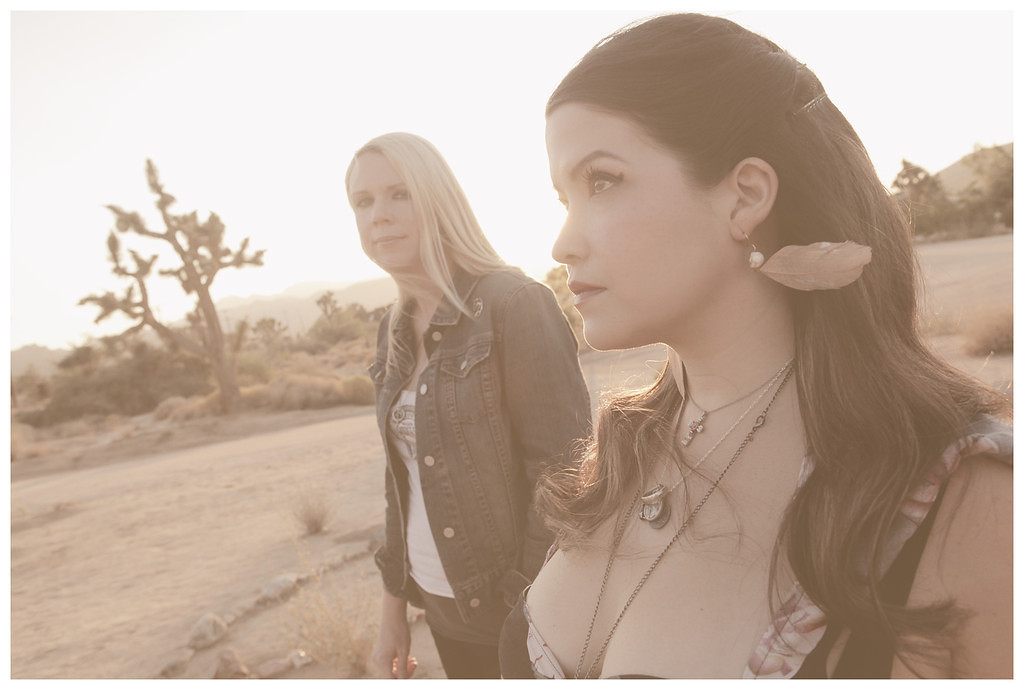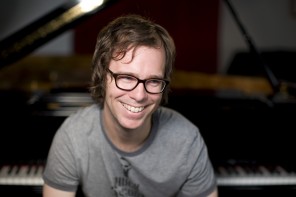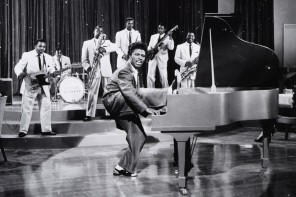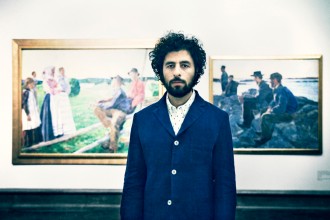Ziggy Marley once sang, “If you don’t know your past, you don’t know your future.” If that’s true, the ladies of Atlanta alt-country act Granville Automatic could prove to be sage prognosticators.
Named after a 19th century typewriter, the duo– Elizabeth Elkins and Vanessa Olivarez– came together in 2009. Vocalist Olivarez, an American Idol finalist who went on to co-write songs for Sugarland, was looking to start a country band. Guitarist Elkins, who divided her time between fronting Atlanta rock band The Swear and songwriting sessions in Nashville, proved the perfect partner.
Within a year they’d written over 100 songs, with a sound that recalls iconic artists like Gram Parsons, Emmylou Harris and Linda Ronstadt. But while Granville Automatic’s music draws its influences from classic country traditions, their lyrics are rooted in true stories culled from American history.
The band’s second album, An Army Without Music, finds them delving deeper into stories from the Civil War South. We recently spoke to the duo in depth about the excellent album’s inspiration.
When did you start taking an interest in Civil War history?
Elizabeth: When we first started writing, we knew we wanted to tell stories through our songs. I think it was Vanessa who first said that we should write an album based on the Civil War. The first song we wrote about it was “The Groundskeeper,” which is on our first album and based on a ghost encounter we had at a Civil War site in Nashville. I’ve always been a huge history buff, but I hadn’t really paid attention to the land I was driving over every day here in Atlanta. When I started looking at old map and new maps overlaid, I realized that this whole Little 5 Points/East Atlanta/Reynoldstown area was the site of the Battle of Atlanta, and how different it was today. That triggered the idea for the song “Copenhill,” which was also on our first record. We both realized that we’ve always wanted to tell stories that would help people remember the past.
How did the idea for the new album come about?
Elizabeth: The opportunity came up to do a residency program in Florida called “Escape to Create.” When we’re on tour we go to see lots of historic sites, including Civil War battlefields. So many of them have been covered up by interstates and Wal-Marts. So we pitched the people who run this residency program an idea to write an album about these places where this terribly tragic history happened. They loved it, so we spent a month in Seaside, Florida writing the album.
What is it about history that makes for such fertile songwriting?
Vanessa: The cool thing about history is that you never run out of source material. It’s kind of like shopping at Goodwill, where you have to really dig to find the good stuff: We love to dig for stories people haven’t heard yet.
Elizabeth: We didn’t want to write general war songs. The new record has songs sung from the perspective of a little girl, a sideboard, a doctor, a ghost… Somehow these stories just make their way to us, and sometimes it’s just about listening when you’re in a new place. But they’re all personal stories.
Tell me about the field recordings you’ve been doing on battlefields for the Civil War Trust project.
Elizabeth: We’ve been making field recordings recorded live at these historic sites, to capture the background noise and everything. So not only will you have different arrangements of the songs, but we want the background noise to make people question why there’s now an interstate where this horrific battle took place. The wind has been following us everywhere we go, but we really wanting to get the atmosphere everywhere we go to record. But video is so important now– you’ve got to have a YouTube presence– and we’ve got this filmmaker from L.A. named Abby Linne who volunteered to help us. She’s been a lifesaver to this project. We’ve done four now, and plan to do three more.
Why do you think people have taken more interest in early Americana in recent years?
Elizabeth: I think people want a sense of belonging to something. My family is made up of military veterans as far back as I can go on either side, so I was raised with this idea of remembering and honoring those that came before. We wanted to write these songs to help people remember their history.
Vanessa: In our modern world of cell phones and tablets, when nobody talks to each other anymore, I feel like people really do long for a sense of tradition. I think we provide that in an unconventional way that’s not like reading from a dry history book. I think it allows people to connect to the past more easily.
Elizabeth: I think people are intrigued by the fact that it’s done by two girls, who are younger. We’re like a gateway drug to history.
Vanessa: It’s the Civil War… with boobs!







